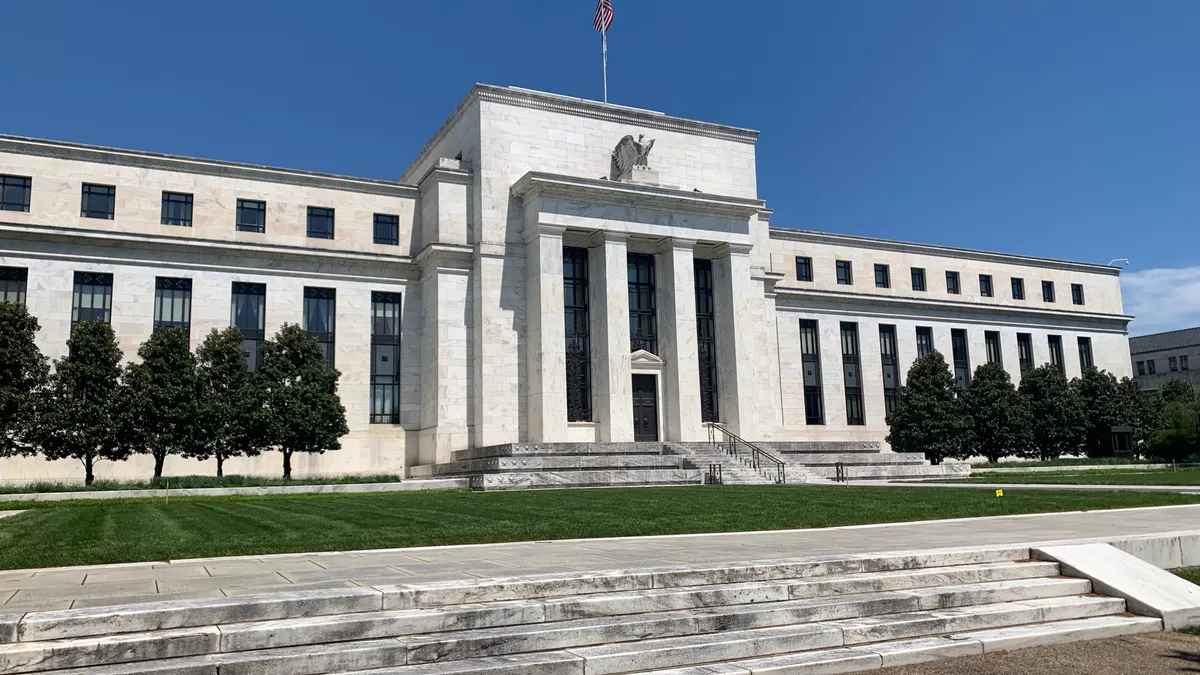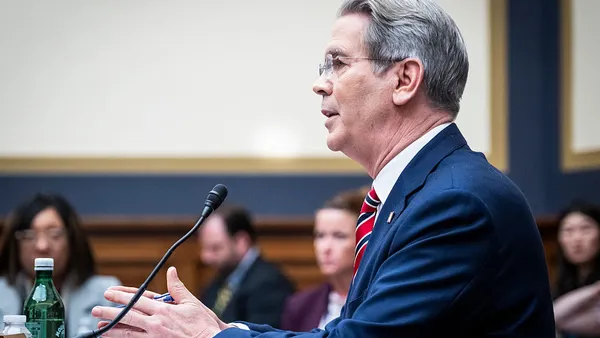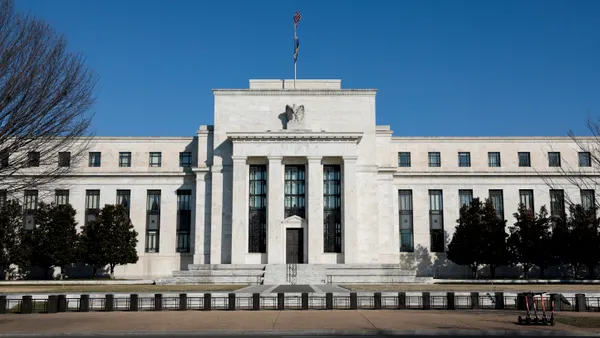Dive Brief:
- A group of four Democratic senators introduced legislation Tuesday that would penalize Federal Reserve officials who violate the central bank's updated policy barring them from buying individual stocks, holding investments in individual bonds or agency-backed securities, or entering into derivatives. The bill is co-sponsored by Sens. Sherrod Brown of Ohio, Kirsten Gillibrand of New York, Jeff Merkley of Oregon and Raphael Warnock of Georgia.
- Fed officials would face fines of at least 10% of the value of the investment that was either bought or sold, The Wall Street Journal reported Wednesday. The bill was read twice Tuesday and referred to the Senate Banking Committee, according to a congressional website.
- The proposed legislation comes on the heels of a scandal that saw two regional Fed presidents, Eric Rosengren of Boston and Robert Kaplan of Dallas, resign last month after financial disclosures unveiled that they traded stocks last year while also helping to set monetary policy. The practice met the central bank’s code of ethics but generated concerns around potential conflicts of interest.
Dive Insight:
Fed rules issued last Thursday limit senior officials’ investments to “purchasing diversified investment vehicles, like mutual funds,” the central bank said. Tuesday's bill would codify that into law.
The bill would prevent the Fed's board of governors, 12 regional presidents and senior staff from trading individual stocks, but allow investments in diversified mutual funds, investment trusts and U.S. Treasury securities, according to The Wall Street Journal.
The bill would also give officials a window to sell disallowed securities. Alternatively, officials could hold their investments or put them in a blind trust.
Last week's new Fed rules force policymakers and senior staff to provide 45 days’ notice before buying or selling any allowed securities. Additionally, they must obtain approval for those transactions and must hold any investments for at least a year, the central bank said. “Further, no purchases or sales will be allowed during periods of heightened financial market stress,” the Fed said.
Under the rules, the Fed's 12 regional presidents must publicly disclose financial transactions within 30 days — a policy to which Washington-based Fed governors and senior staff already must adhere.
“The American people need to be able to trust that the Federal Reserve works for them, and that officials aren’t abusing their positions for personal gain,” Brown said in a statement seen by the Journal.
Underlying the recent discussion surrounding Fed ethics is the prospect that the central bank's chairman, Jerome Powell, is nearing the end of his term. President Joe Biden has previously said he would indicate this fall whether he will renominate Powell, whose term expires in February.
That prospect, however, has seen blowback from some Democratic lawmakers who might favor a more liberal-leaning candidate. Most prominently, Sen. Elizabeth Warren, D-MA, publicly stated her opposition to Powell’s renomination in a hearing last month.
The Fed stock-trading scandal, meanwhile, spread beyond regional presidents. Financial disclosures, uncovered this month, found that Fed Vice Chair Richard Clarida moved between $1 million and $5 million from a bond fund into stock funds on Feb. 27, 2020 — a day before Powell issued a statement signaling the Fed might cut interest rates.
In a similar vein, a disclosure indicated Powell withdrew between $1 million and $5 million from a Vanguard stock index fund in October 2020.














